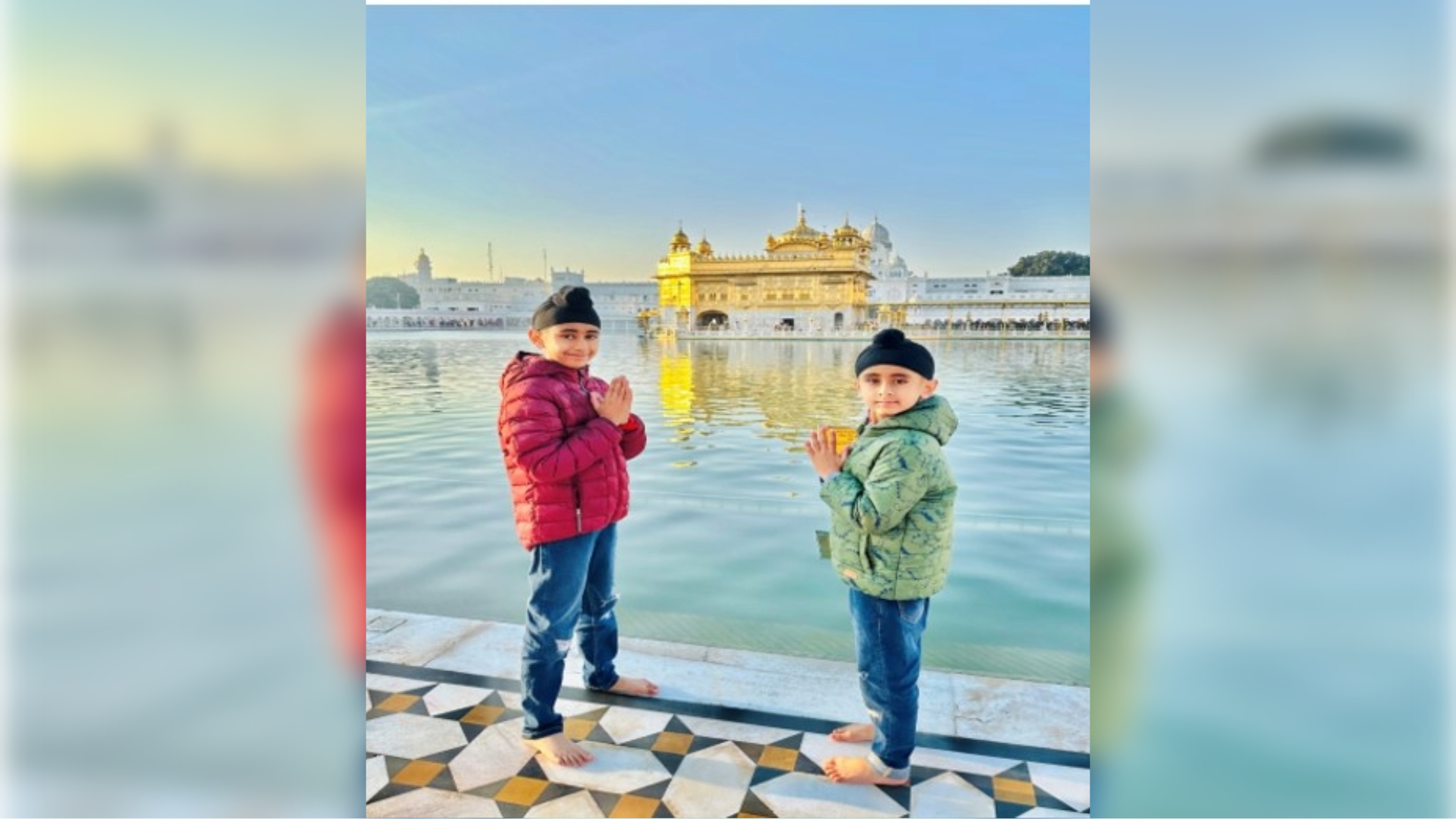An insight into being a Sikh

Virajveer and Warisveer Singh visiting the Golden Temple, Amritsar Punjab in India. Photo: Supplied.
Virajveer Singh Sandhu is 12 years old and, along with his family, lives in Blenheim. Faced with some misunderstandings about his culture and religion, the St Mary's School pupil has written a piece about being a Sikh, why he is proud of his identity and some facts about the world's 5th largest religion.
I am Virajveer Singh Sandhu, and I feel proud to share my story with you.
I was born in Tauranga, Aotearoa, and recently moved to Marlborough. My parents made a difficult decision to leave their home country, Punjab, and start a new life and career in New Zealand in 2009.
After moving to Blenheim, I realised many people here were unaware of my culture, religion, and the significance of my turban. My brother and I have often faced misunderstandings regarding our identities and individualities, but we believe that it's essential to be proud of who we are.
I would like to use this opportunity to educate the community about my religion. I believe that by sharing my story and raising awareness, we can foster a more inclusive and respectful community, where everyone feels valued and respected.
Sikh and Sikhism
Sikhism is a young monotheistic religion founded by Guru Nanak Dev Ji in 1469 in Punjab, North India. It emphasises the equality of all human beings and three fundamental principles: meditating, earning an honest living, and sharing.
Sikhism is the world’s fifth largest religion with 25 million adherents worldwide. Sikhs cover their uncut hair with a turban. Turbans are worn to cover our long hair and with respect to God. The Sikh Turban represents a commitment to equality and justice.
Sikhism is a distinct religion, separate from Hinduism and Islam.
History and Beliefs
The Sikh faith, founded by Guru Nanak 500 years ago, preaches a message of love and believes in a universal God beyond religion, race, nation, creed, color, or gender. Human rights and justice form a cornerstone of Sikh belief, and Sikhs have a history of sacrificing for religious freedom and justice. Sikhs have also played a significant role in the British armed forces during both World Wars, being highly decorated soldiers.
The Sikh Identity
In 1699, Guru Gobind Singh, the tenth and last living Sikh Guru, called upon his followers to gather in the town of Anandpur in Punjab. Over 80,000 individuals responded to his call. According to historical accounts, Guru Gobind Singh appeared before his people and brandished a naked sword, demanding a head. He repeated his call until five Sikhs from various parts of India and different castes volunteered. These five individuals were initiated into a new discipline and creed for Sikhs, known as the Khalsa. In a dramatic and historic gesture, they then initiated Guru Gobind Singh into the Khalsa as well. On that day, he gave the Sikhs a unique identity which includes five articles of faith:
Unshorn hair as a gift of God and Guru and a mark of Sikh identity
A small comb for the hair
A Steel bracelet signifying a reality with no beginning and no end - also symbolic of a Sikh's commitment to the ideals of faith.
A sword indicative of resolve and commitment to justice.
Knee-length breeches in keeping with the disciplined lifestyle of a Sikh.
Guru Gobind Singh freed Sikhs from the rigid caste system by ordering all Sikh males to adopt the surname “Singh,” meaning a lion, and women use the surname “Kaur” meaning princess.
The Sikh Scripture
The Guru Granth Sahib is a collection of writings from earlier Sikh, Hindu, and Muslim spiritual leaders who shared similar beliefs. It's the repository of all spiritual knowledge and authority for Sikhs, while temporal authority rests with the worldwide Sikh community. The ten Gurus, from Guru Nanak to Guru Gobind Singh, are revered for delivering the divine word of the timeless God, and the word "Guru" is reserved for them.

Takanini Gurdwara was founded in 2003 and has grown to include a library, play center, and a $10 million complex with seven international sports fields by the Sikh community, inaugurated by Former Prime Minister Jacinda Ardern in March 2021.
The Gurdwara, a place of worship, also serves as a refuge for the homeless and needy. Visitors are offered shelter, comfort, and food, regardless of religion. To enter, cover your head and remove your shoes. Gurdwaras don't reserve special seats for dignitaries as everyone is equal. Services include singing and exposition of Sikh history, and non-Sikhs are welcome. Free community kitchens, run by volunteers, serve meals to all.
Sikhism values honesty, sharing, and living life with an awareness of spirituality. Miri-Piri is the concept of leading a life with a strong sense of commitment to the world and humanity.
